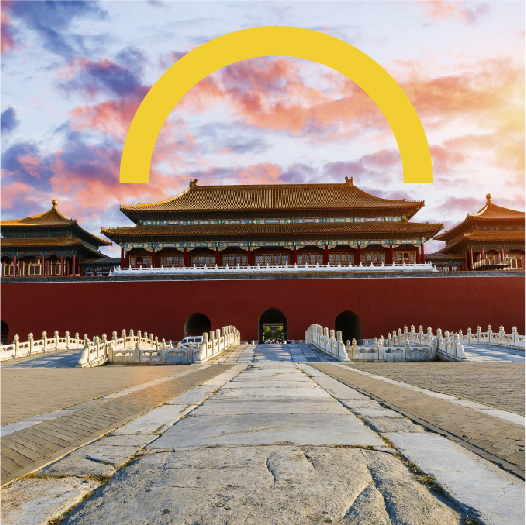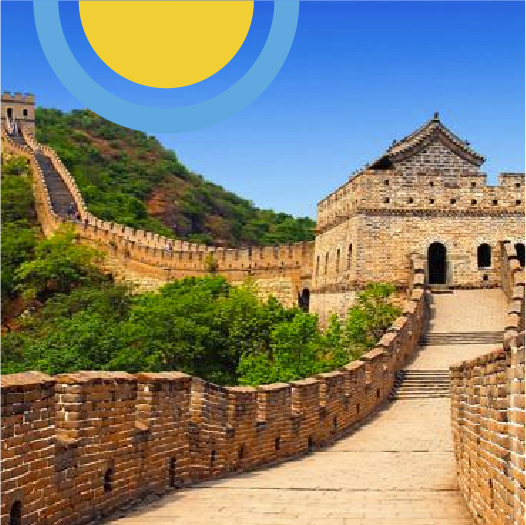Journey Through English with ILTI: Beijing – where sleek modernity meets historical splendour
Being able to speak English is as important as having your passport while travelling. When people of different nationalities come together, they communicate in English. Why, even many people in China’s largest cities are learning English these days.
Our weekly exploration of the world to learn more new words continues with a trip to, you guessed it right – Beijing in China! So, buckle your seat belts, relax and practise your English while enjoying the flight.
China, specifically the sprawling capital of Beijing, has developed by leaps and bounds over the past few decades. The capital has also come to be known for its gigantic modern architecture such as the Bird’s Nest National Stadium, Water Cube National Aquatics Centre, and National Grand Theatre, as it is recognised for its historical landmarks.
Designed for the 2008 Summer Olympics and Paralympics, the Beijing National Stadium is also known as the Bird’s Nest due to its steel frames converging into a grid formation that looks like well, a bird’s nest. Likewise, the National Aquatics Centre next to it is called the Water Cube due to its appearance. The National Grand Theatre next to Tiananmen Square is a curved building featuring a titanium shell and emerges like an island at the centre of a lake.
You have not really seen Beijing until you have explored the Forbidden City, and the Great Wall of China. These two ancient architectural wonders will get you thinking how it was possible to build something this extensive without the modern tools and machinery that we’ve come to rely on.
The Forbidden City is called a forbidden city as no one could enter or leave the walled city without the emperor’s permission. For over 500 years, the complex consisting of 980 buildings encompassing 8,886 rooms and covering 72 hectares, was the political and ritual centre of China. It was completed in 1420 and was home to 24 emperors until the forced abdication of Pu Yi, China’s last emperor, in 1912. An Unesco World Heritage Site, the Forbidden City is China’s best preserved imperial palace and the largest ancient palatial structure in the world, and renders a visit at least once in your lifetime.
The Great Wall of China doesn’t need much introduction. An ancient series of walls and fortifications located in northern China to keep away insurgents, the Great Wall was continuously built from 300BC to 1700AD and is suggested to be 21,000km-long in total. The Great Wall begins in the east in Hebei province and ends in the Gansu province to the west. Also listed as an Unesco World Heritage Site, the Great Wall is one of the most visited places in the world. The Mutianyu section located in the Huairou district within 70km of Beijing is the best preserved section of the Great Wall and is most popular among travellers.
Other must-see places in Beijing include the Tiananmen Square where several important events in Chinese history have taken place; the Temple of Heaven used by emperors in the Ming and Qing dynasties for annual ceremonies of prayer to Heaven for good harvests; and the Summer Palace – the Qing dynasty imperial garden.
Words and phrases to learn:
exploration – the action of exploring an unfamiliar area
sprawling – spread out over a large area
leaps and bounds – with unexpected rapid progress
gigantic – huge or enormous
converging – tend to meet at a point
grid – a network of lines that cross each other to form a series of squares or rectangles
forbidden – not allowed, banned
encompass – hold within
ritual – a religious or solemn ceremony
abdication – an act of renouncing the throne
imperial – relating to an empire
palatial – resembling a palace in being spacious or splendid
render – cause to be or become
fortification – a defensive wall or other reinforcement built to strengthen a place against attacks
insurgents – people fighting against a government, invading force, rebels
Communicate confidently in English anywhere you go in the world. Are you ready to travel the world through your English learning journey at ILTI? Get in touch with us today by calling 010-395 3067 or visit ilti.edu.my.





